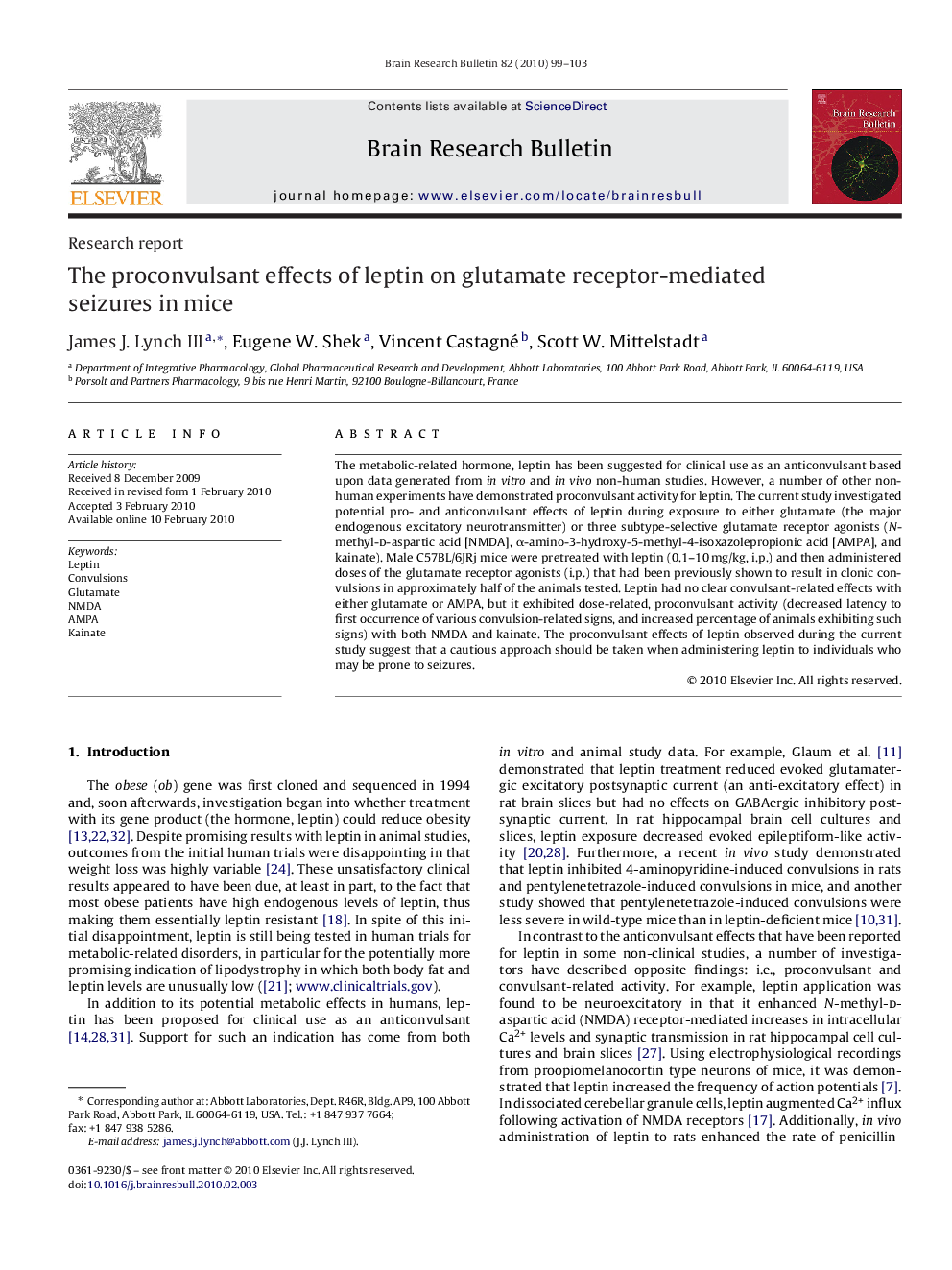| Article ID | Journal | Published Year | Pages | File Type |
|---|---|---|---|---|
| 4319126 | Brain Research Bulletin | 2010 | 5 Pages |
The metabolic-related hormone, leptin has been suggested for clinical use as an anticonvulsant based upon data generated from in vitro and in vivo non-human studies. However, a number of other non-human experiments have demonstrated proconvulsant activity for leptin. The current study investigated potential pro- and anticonvulsant effects of leptin during exposure to either glutamate (the major endogenous excitatory neurotransmitter) or three subtype-selective glutamate receptor agonists (N-methyl-d-aspartic acid [NMDA], α-amino-3-hydroxy-5-methyl-4-isoxazolepropionic acid [AMPA], and kainate). Male C57BL/6JRj mice were pretreated with leptin (0.1–10 mg/kg, i.p.) and then administered doses of the glutamate receptor agonists (i.p.) that had been previously shown to result in clonic convulsions in approximately half of the animals tested. Leptin had no clear convulsant-related effects with either glutamate or AMPA, but it exhibited dose-related, proconvulsant activity (decreased latency to first occurrence of various convulsion-related signs, and increased percentage of animals exhibiting such signs) with both NMDA and kainate. The proconvulsant effects of leptin observed during the current study suggest that a cautious approach should be taken when administering leptin to individuals who may be prone to seizures.
